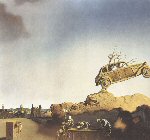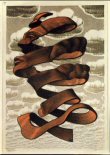Joseph Weizenbaum, who died recently, had documented in the 1970s in Computer Power and Human Reason (W. H. Freeman and Company, 1976) the natures of compulsive programmers, disinterested in their bodily needs and detached from the world around them.
Such figures are come across in a market economy country where advanced technologies are part of everyday life, and we don’t pay much attention to them.
The famous McLuhan phrase, “The medium is the message,” and before this the Taoist affirmations according to which the use of instruments transforms us into them had never seemed as self-evident to me as in Cuba some years ago.
[/en][it]
Joseph Weizenbaum in Il potere del computer e la ragione umana (Edizioni Gruppo Abele. Torino. 1987), da poco scomparso, aveva documentato già dagli anni ’70 la natura dei “programmatori coatti”, che dedicano la vita alla programmazione, disinteressati dei bisogni del corpo e distaccati dal mondo che li circonda.
Finché si incontrano tali figure in un centro di calcolo di una nazione con economia di mercato dove le tecnologie avanzate sono di casa ci si fa poco caso.
La famose frase “Il medium è il messaggio” di McLuhan e prima di questa, le affermazioni del taoismo secondo cui l’utilizzo degli strumenti ci trasforma negli stessi, non mi sono mai sembrate tanto evidenti quanto a Cuba alcuni anni fa.
[/it]
Leggi tutto “Technological salsa”



